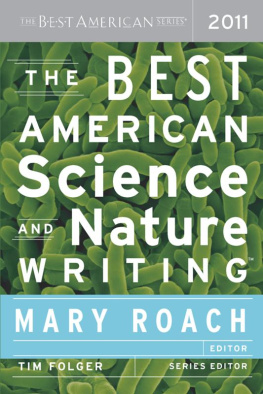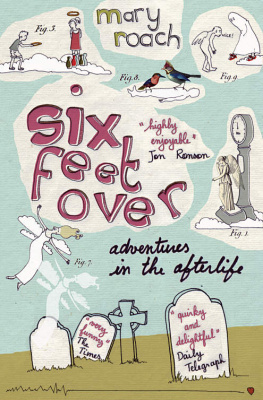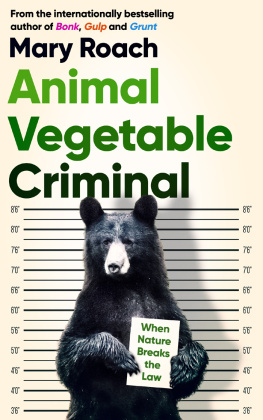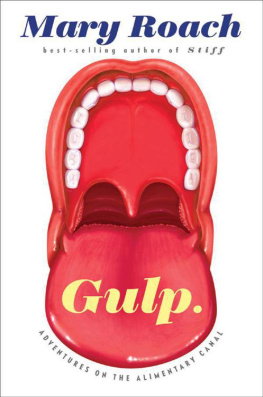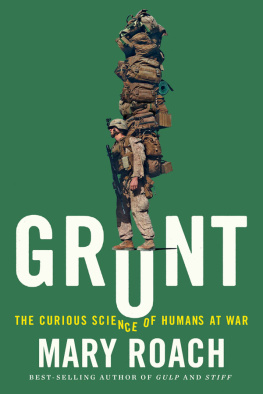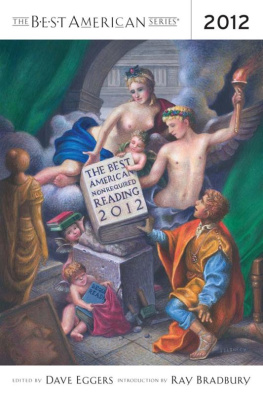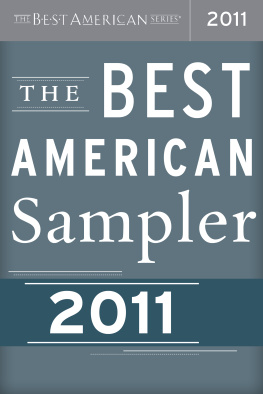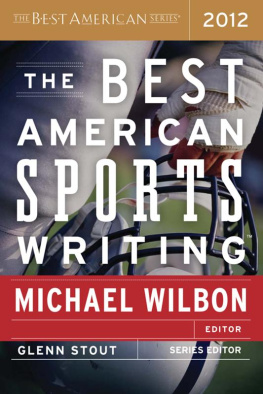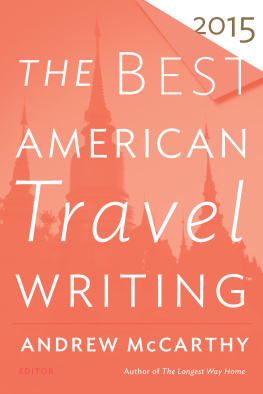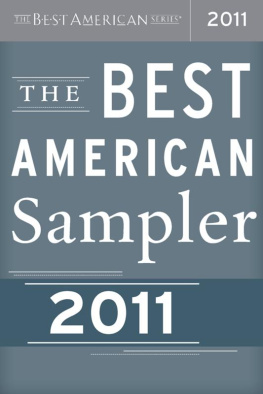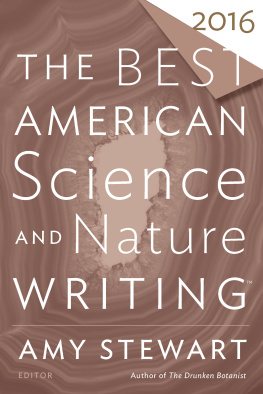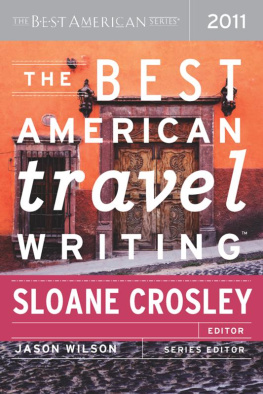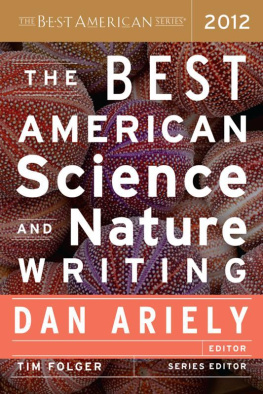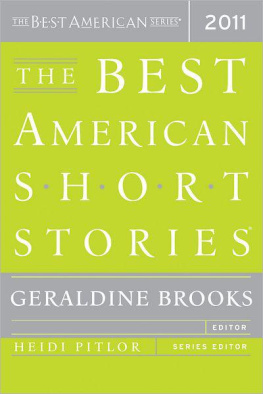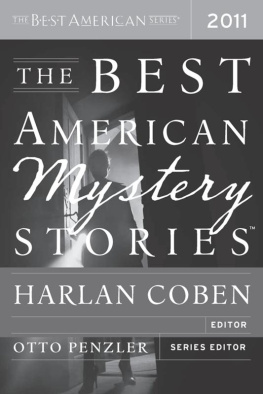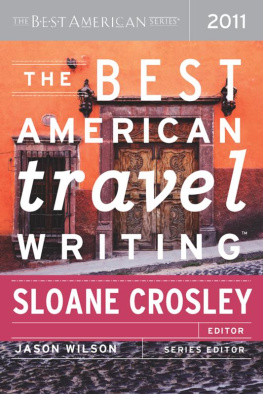Copyright 2011 by Houghton Mifflin Harcourt Publishing Company
Introduction copyright 2011 by Mary Roach
ALL RIGHTS RESERVED
The Best American Science and Nature Writing is a trademark of Houghton Mifflin
Harcourt Publishing Company. The Best American Series is a registered trade
mark of Houghton Mifflin Harcourt Publishing Company.
No part of this work may be reproduced or transmitted in any form or by any means,
electronic or mechanical, including photocopying and recording, or by any infor
mation storage or retrieval system without the prior written permission of the copy
right owner unless such copying is expressly permitted by federal copyright law.
With the exception of nonprofit transcription in Braille, Houghton Mifflin Har
court is not authorized to grant permission for further uses of copyrighted selec
tions reprinted in this book without the permission of their owners. Permission
must be obtained from the individual copyright owners identified herein. Address
requests for permission to make copies of Houghton Mifflin Harcourt material to
Permissions, Houghton Mifflin Harcourt Publishing Company, 215 Park Avenue
South, New York, New York 10003.
www.hmhbooks.com
ISSN 1530-1508
ISBN 978-0-547-35063-9
Printed in the United States of America
DOC 10 9 8 7 6 5 4 3 2 1
"The Organ Dealer" by Yudhijit Bhattacharjee. First published in Discover, April
2010. Copyright 2010 by Yudhijit Bhattacharjee. Reprinted by permission of the
author.
"Nature's Spoils" by Burkhard Bilger. First published in The New Yorker, November
22, 2010. Copyright 2010 by Burkhard Bilger. Reprinted by permission of Burk
hard Bilger. Excerpt from the lyrics to "Human(e) Meat (The Flensing of Sandor
Katz)" are reprinted by permission of Propagandhi.
"The Chemist's War" by Deborah Blum. First published in Slate, February 19,
2010 (www.Slate.com). Copyright 2010 by Deborah Blum. Reprinted by permis
sion of Slate.
"Fertility Rites" by Jon Cohen. First published in The Atlantic, October 2010.
Adapted from Almost Chimpanzee: Searching for What Makes Us Human in Rainforests,
Labs, Sanctuaries, and Zoos by Jon Cohen. Copyright 2010 by Jon Cohen. Reprinted
by permission of Henry Holt and Company, LLC.
"The Brain That Changed Everything" by Luke Dittrich. First published in Es-
quire, November 2010. Copyright 2010 by Luke Dittrich. Reprinted by permission
of Luke Dittrich.
"Emptying the Skies" by Jonathan Franzen. First published in The New Yorker, July
28, 2010. Copyright 2010 by Jonathan Franzen. Reprinted by permission of Jona
than Franzen.
"Fish Out of Water" by Ian Frazier. First published in The New Yorker, October 25,
2010. Copyright 2010 by Ian Frazier. Reprinted by permission of The Wylie
Agency, LLC.
"Lies, Damn Lies, and Medical Science" by David H. Freedman. First published in
The Atlantic, November 2010. Copyright 2010 by David H. Freedman. Reprinted
by permission of David H. Freedman.
"Letting Go" by Atul Gawande. First published in The New Yorker, August 2, 2010.
Copyright 2010 by Atul Gawande. Reprinted by permission of the author.
"The Treatment" by Malcolm Gladwell. First published in The New Yorker, May 17,
2010. Copyright 2010 by Malcolm Gladwell. Reprinted by permission of the
author.
"Cosmic Blueprint of Life" by Andrew Grant. First published in Discover, Novem
ber 2010. Copyright 2010 by Discover. Reprinted by permission.
"The (Elusive) Theory of Everything" by Stephen Hawking and Leonard Mlodi
now. First published in Scientific American, October 2010. Reprinted by permission
of the authors.
"The Spill Seekers" by Rowan Jacobsen. First published in Outside, November
2010. Copyright 2011 by Rowan Jacobsen. Reprinted by permission of Rowan
Jacobsen.
"New Dog in Town" by Christopher Ketcham. First published in Orion, Septem
ber/October 2010. Copyright 2010 by Christopher Ketcham. Reprinted by per
mission of the author.
"Taking a Fall" by Dan Koeppel. First published in Popular Mechanics, February
2010. Copyright 2010 by Dan Koeppel. Reprinted by permission of Dan Koep
pel.
"The First Church of Robotics" by Jaron Lanier. First published in the New York
Times, August 9, 2010. Copyright 2010 by Jaron Lanier. Reprinted by permission
of the author.
"Spectral Light" by Amy Irvine McHarg. First published in Orion, January/Febru
ary 2010. Copyright 2011 by Amy Irvine McHarg. Reprinted by permission of
Amy Irvine McHarg.
"The Love That Dare Not Squawk Its Name" by Jon Mooallem. First published in
the New York Times Magazine, March 31, 2010. Copyright 2010 by Jon Mooallem.
Reprinted by permission of the author.
"Could Time End?" by George Musser. First published in Scientific American, Sep
tember 2010. Copyright 2010 by Scientific American, a division of Nature Amer
ica, Inc. Reproduced with permission. All rights reserved.
"Sign Here If You Exist" by Jill Sisson Quinn. First published in Ecotone, Fall 2010.
Copyright 2010 by Jill Sisson Quinn. Reprinted by permission of the author.
"Face-Blind" by Oliver Sacks. First published in The New Yorker, August 30, 2010.
From The Mind's Eye by Oliver Sacks, copyright 2010 by Oliver Sacks. Used by per
mission of Alfred A. Knopf, a division of Random House, Inc., and Knopf Canada.
"Waste MGMT" by Evan I. Schwartz. First published in Wired, June 2010. Copy
right 2010 by Evan I. Schwartz. Reprinted by permission of Evan I. Schwartz.
"The Whole Fracking Enchilada" by Sandra Steingraber. First published in Orion,
September/October 2010. Copyright 2010 by Sandra Steingraber. Reprinted by
permission of the author.
"The New King of the Sea" by Abigail Tucker. First published in Smithsonian, July/
August 2010. Copyright 2010 by Abigail Tucker. Reprinted by permission of the
author.
"The Killer in the Pool" by Tim Zimmermann. First published in Outside, July
2010. Copyright 2011 by Tim Zimmermann. Reprinted by permission of Tim
Zimmermann.
Foreword
O NE DAY LAST February a team of NASA scientists made an astonishing announcement. A space telescope named Kepler, launched in March 2009, had found 1,235 planets orbiting other stars. Astronomers cautioned that they would need years to confirm the discovery completely, but there's little doubt that most of the new planets will survive scrutiny. In one stroke the number of planets in our galaxy more than doubled; as recently as twenty years ago the only known planets were those in our own solar system. For the first time in history we now know that planetary systems are common in the universe, which raises considerably the odds that lifeperhaps even intelligent lifemay exist elsewhere in the cosmos. Geoff Marcy, an astronomer on the Kepler team, could barely contain his excitement.
"It really is a historic moment," he told me during a chat in his office on the University of California campus in Berkeley. "I really think February 3, 2011"the date NASA released the news"will be remembered for a long time. It was a moment when all the interested members of our species, no matter what continent they lived on, realized that the Milky Way galaxy is just teeming with Earth-size planets. What Kepler is doing is literally finding new worldsnot metaphorical worlds, but actual worlds. This really is an extraordinary new chapter in human history."
The new chapterone of the great discoveries of the agesmade headlines for a day, and then ... our collective attention moved on. The Super Bowl was only a few days away; protesters were massing in Cairo's Tahrir Square. A thousand new worlds, some of which might be habitable? Yesterday's news. It made me wonder what cultural life might have been like, say, in Galileo's time, if Renaissance Italy had been plagued by a twenty-four-hour news cycle. Would endlessly recycled rumors of a papal scandal have eclipsed Galileo's discovery of the moons of Jupiter in 1610? Or maybe a hit reality stage show
Next page
